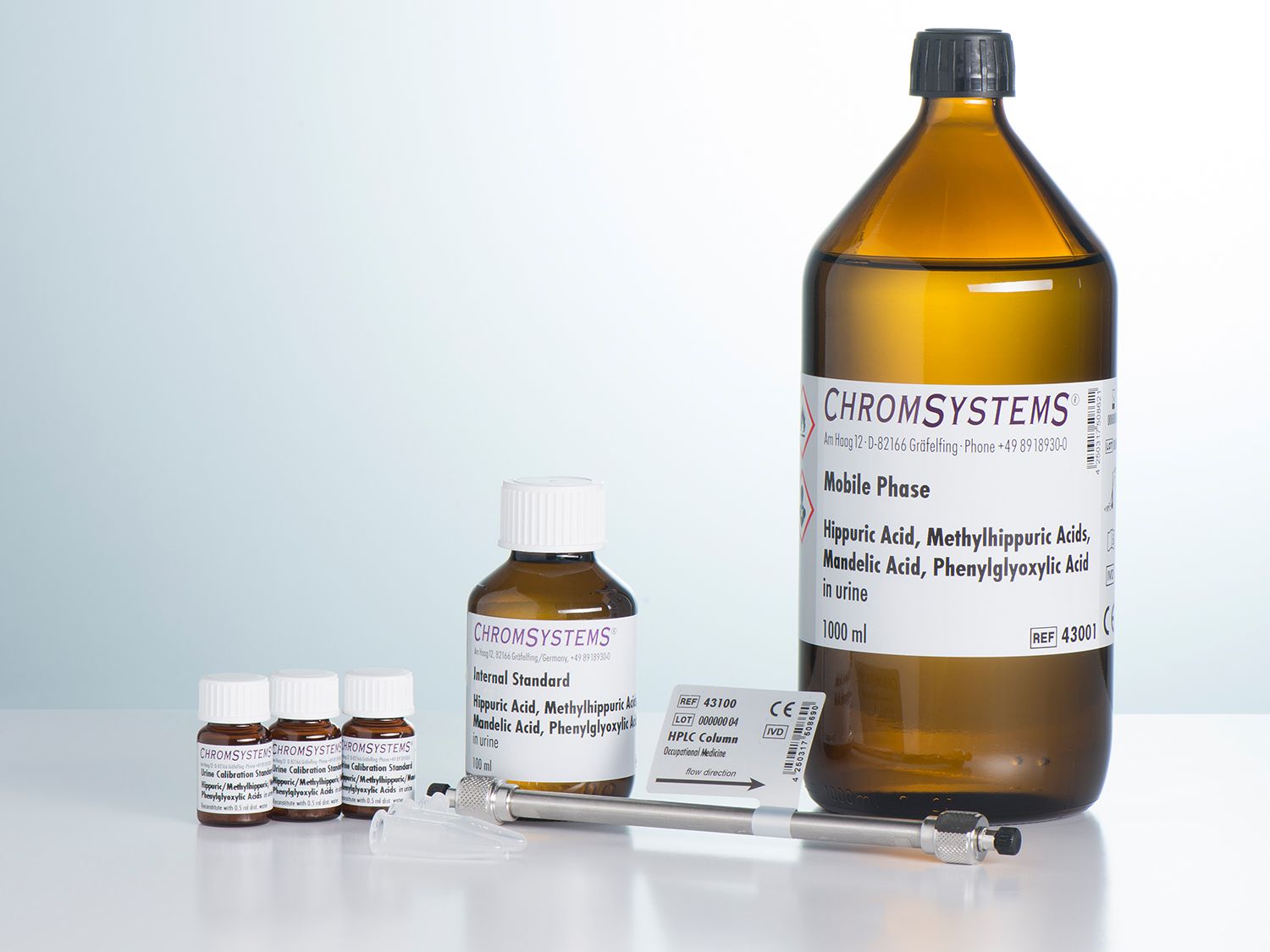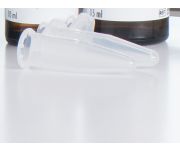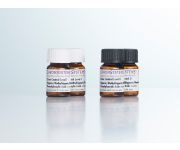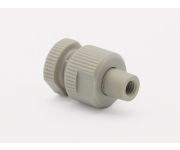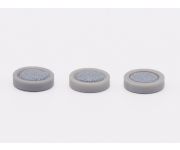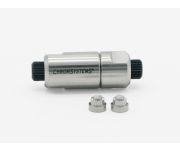Hippuric Acid, Methylhippuric Acids, Mandelic Acid and Phenylglyoxylic Acid in Urine - HPLC
Only 10 µl sample volume
Internal standard included
Simple sample preparation
CE-IVD validated product ready for IVDR within timeframes and transition periods specified by the IVDR 2017/746
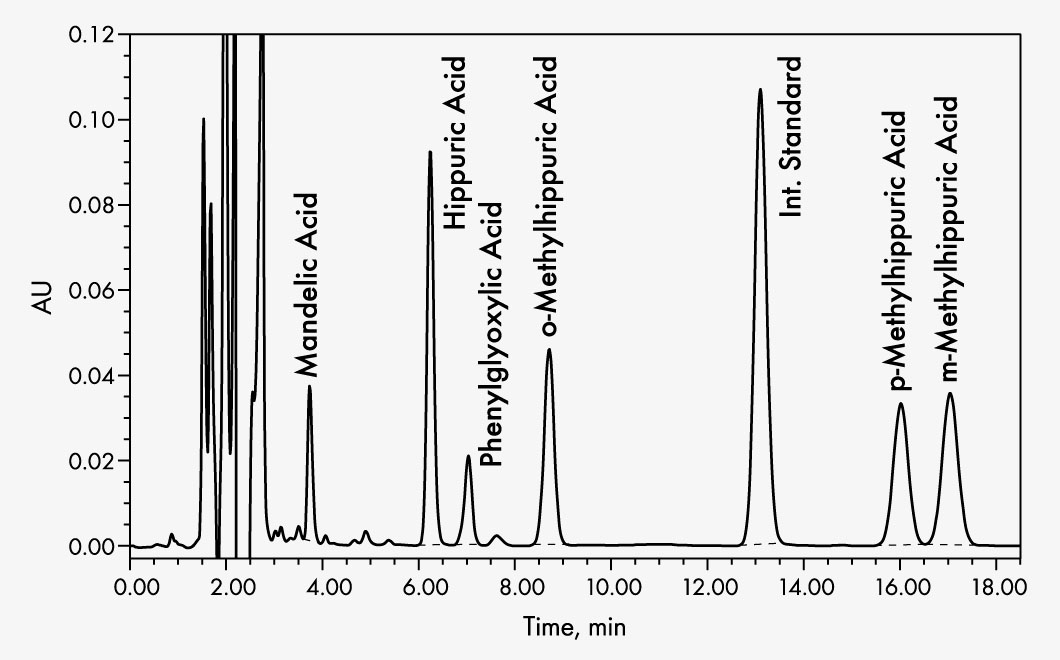

Hippuric Acid
m-Methylhippuric Acid
Mandelic Acid
o-Methylhippuric Acid
p-Methylhippuric Acid
Phenylglyoxylic Acid
Clinical relevance
Hippuric acid, o-, m-, p-methylhippuric acid, mandelic acid and phenylglyoxylic acid are the main metabolites of the organic solvents: toluene, xylene, and styrene. These toxic compounds are widely used throughout various industries, making the determination of their concentrations relevant to occupational health in a number of different professional fields. Due to their high levels of volatility, they primarily enter the body through inhalation and are rapidly absorbed through the lungs. For occupational health monitoring of people who are exposed to these compounds at work, measurement of the metabolites in urine is more reliable than determining the concentrations of the toxins in the blood, due to their very fast metabolism rates.
For any hazardous substance or its metabolite, a BTV (Biological Tolerance Value) is defined as a threshold value for maximum absorption in biological material. Solvent-related harm to human health can be prevented by performing regular monitoring of urine.
Product advantages
- Only 10 µl sample volume
- Optimised internal standard
- Straightforward sample preparation
This Chromsystems assay provides rapid and reliable determination of the main metabolites of toluene, xylene, and styrene in a single run. A 10 µl urine sample is all that is required, which is then analysed using an isocratic HPLC system with UV detection following a simple and fast preparation step. The inclusion of a tailor-made internal standard reduces analytical variations and guarantees high precision and reliability of results.
| Method of Analysis | HPLC |
|---|---|
| Number of Tests | 100 |
| Please note | The freely available information on this website, in particular on the sample preparation, are not sufficient to work with our products. Please read instructions and warning notices on products and/or instruction manuals. |
| Lower Limit of Quantitation | 4–11 mg/l |
| Upper Limit of Quantification | Hippuric acid: up to 18000 mg/l Methylhippuric acid: up to 7000 mg/l Mandelic acid: up to 4000 mg/l Phenylglyoxylic acid: up to 1650 mg/l |
| Intraassay | CV = 0.7–1.1 % |
| Interassay | CV = 0.9–4.6 % |
| Recovery | 102–109 % |
| BEI values | Hippuric acid: 1500 mg/l; Methylhippuric acid: 2000 mg/l; Mandelic acid: 400 mg/l; Phenylglyoxylic acid: 100 mg/l |
| Specimen | Urine, collected after end of shift |
| Sample Preparation |
|
| Run Time | approx. 20 min |
| Injection Volume | 20 µl |
| Flow Rate | 1.0 ml/min |
| Column Temperature | ambient (~ 25 °C) |
| Wavelengths | 207 nm |
| Additional Info | Any isocratic HPLC system with UV detector is suitable. |
| Parameters | Hippuric Acid, m-Methylhippuric Acid, Mandelic Acid, o-Methylhippuric Acid, p-Methylhippuric Acid, Phenylglyoxylic Acid |
-
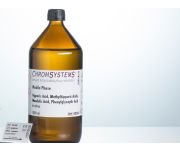 Mobile PhaseOrder no.: 43001Hippuric Acid, Methylhippuric Acids, Mandelic Acid and Phenylglyoxylic Acid in Urine - HPLC
Mobile PhaseOrder no.: 43001Hippuric Acid, Methylhippuric Acids, Mandelic Acid and Phenylglyoxylic Acid in Urine - HPLC -
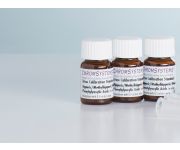 Occupational Medicine Urine Calibration StandardOrder no.: 43003Hippuric Acid, Methylhippuric Acids, Mandelic Acid and Phenylglyoxylic Acid in Urine - HPLC
Occupational Medicine Urine Calibration StandardOrder no.: 43003Hippuric Acid, Methylhippuric Acids, Mandelic Acid and Phenylglyoxylic Acid in Urine - HPLC -
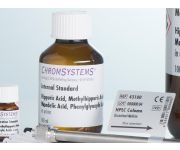 Internal StandardOrder no.: 43004Hippuric Acid, Methylhippuric Acids, Mandelic Acid and Phenylglyoxylic Acid in Urine - HPLC
Internal StandardOrder no.: 43004Hippuric Acid, Methylhippuric Acids, Mandelic Acid and Phenylglyoxylic Acid in Urine - HPLC
-
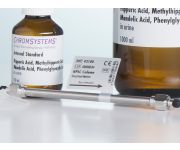 HPLC Column Hippuric Acid, Methylhippuric Acids, Mandelic Acid and Phenylglyoxylic Acid in UrineOrder no.: 43100Hippuric Acid, Methylhippuric Acids, Mandelic Acid and Phenylglyoxylic Acid in Urine - HPLC
HPLC Column Hippuric Acid, Methylhippuric Acids, Mandelic Acid and Phenylglyoxylic Acid in UrineOrder no.: 43100Hippuric Acid, Methylhippuric Acids, Mandelic Acid and Phenylglyoxylic Acid in Urine - HPLC -
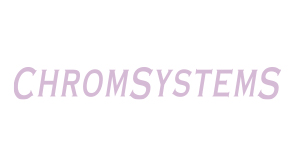 Precolumn Cartridge 4/10Order no.: 18043Hippuric Acid, Methylhippuric Acids, Mandelic Acid and Phenylglyoxylic Acid in Urine - HPLC
Precolumn Cartridge 4/10Order no.: 18043Hippuric Acid, Methylhippuric Acids, Mandelic Acid and Phenylglyoxylic Acid in Urine - HPLC
-
 Occupational Medicine Urine Calibration StandardOrder no.: 43003Hippuric Acid, Methylhippuric Acids, Mandelic Acid and Phenylglyoxylic Acid in Urine - HPLC
Occupational Medicine Urine Calibration StandardOrder no.: 43003Hippuric Acid, Methylhippuric Acids, Mandelic Acid and Phenylglyoxylic Acid in Urine - HPLC
-
 HPLC Column Hippuric Acid, Methylhippuric Acids, Mandelic Acid and Phenylglyoxylic Acid in UrineOrder no.: 43100Hippuric Acid, Methylhippuric Acids, Mandelic Acid and Phenylglyoxylic Acid in Urine - HPLC
HPLC Column Hippuric Acid, Methylhippuric Acids, Mandelic Acid and Phenylglyoxylic Acid in UrineOrder no.: 43100Hippuric Acid, Methylhippuric Acids, Mandelic Acid and Phenylglyoxylic Acid in Urine - HPLC


Hippuric Acid
m-Methylhippuric Acid
Mandelic Acid
o-Methylhippuric Acid
p-Methylhippuric Acid
Phenylglyoxylic Acid
Clinical relevance
Hippuric acid, o-, m-, p-methylhippuric acid, mandelic acid and phenylglyoxylic acid are the main metabolites of the organic solvents: toluene, xylene, and styrene. These toxic compounds are widely used throughout various industries, making the determination of their concentrations relevant to occupational health in a number of different professional fields. Due to their high levels of volatility, they primarily enter the body through inhalation and are rapidly absorbed through the lungs. For occupational health monitoring of people who are exposed to these compounds at work, measurement of the metabolites in urine is more reliable than determining the concentrations of the toxins in the blood, due to their very fast metabolism rates.
For any hazardous substance or its metabolite, a BTV (Biological Tolerance Value) is defined as a threshold value for maximum absorption in biological material. Solvent-related harm to human health can be prevented by performing regular monitoring of urine.
Product advantages
- Only 10 µl sample volume
- Optimised internal standard
- Straightforward sample preparation
This Chromsystems assay provides rapid and reliable determination of the main metabolites of toluene, xylene, and styrene in a single run. A 10 µl urine sample is all that is required, which is then analysed using an isocratic HPLC system with UV detection following a simple and fast preparation step. The inclusion of a tailor-made internal standard reduces analytical variations and guarantees high precision and reliability of results.
| Method of Analysis | HPLC |
|---|---|
| Number of Tests | 100 |
| Please note | The freely available information on this website, in particular on the sample preparation, are not sufficient to work with our products. Please read instructions and warning notices on products and/or instruction manuals. |
| Lower Limit of Quantitation | 4–11 mg/l |
| Upper Limit of Quantification | Hippuric acid: up to 18000 mg/l Methylhippuric acid: up to 7000 mg/l Mandelic acid: up to 4000 mg/l Phenylglyoxylic acid: up to 1650 mg/l |
| Intraassay | CV = 0.7–1.1 % |
| Interassay | CV = 0.9–4.6 % |
| Recovery | 102–109 % |
| BEI values | Hippuric acid: 1500 mg/l; Methylhippuric acid: 2000 mg/l; Mandelic acid: 400 mg/l; Phenylglyoxylic acid: 100 mg/l |
| Specimen | Urine, collected after end of shift |
| Sample Preparation |
|
| Run Time | approx. 20 min |
| Injection Volume | 20 µl |
| Flow Rate | 1.0 ml/min |
| Column Temperature | ambient (~ 25 °C) |
| Wavelengths | 207 nm |
| Additional Info | Any isocratic HPLC system with UV detector is suitable. |
| Parameters | Hippuric Acid, m-Methylhippuric Acid, Mandelic Acid, o-Methylhippuric Acid, p-Methylhippuric Acid, Phenylglyoxylic Acid |
-
 Mobile PhaseOrder no.: 43001Hippuric Acid, Methylhippuric Acids, Mandelic Acid and Phenylglyoxylic Acid in Urine - HPLC
Mobile PhaseOrder no.: 43001Hippuric Acid, Methylhippuric Acids, Mandelic Acid and Phenylglyoxylic Acid in Urine - HPLC -
 Occupational Medicine Urine Calibration StandardOrder no.: 43003Hippuric Acid, Methylhippuric Acids, Mandelic Acid and Phenylglyoxylic Acid in Urine - HPLC
Occupational Medicine Urine Calibration StandardOrder no.: 43003Hippuric Acid, Methylhippuric Acids, Mandelic Acid and Phenylglyoxylic Acid in Urine - HPLC -
 Internal StandardOrder no.: 43004Hippuric Acid, Methylhippuric Acids, Mandelic Acid and Phenylglyoxylic Acid in Urine - HPLC
Internal StandardOrder no.: 43004Hippuric Acid, Methylhippuric Acids, Mandelic Acid and Phenylglyoxylic Acid in Urine - HPLC
-
 HPLC Column Hippuric Acid, Methylhippuric Acids, Mandelic Acid and Phenylglyoxylic Acid in UrineOrder no.: 43100Hippuric Acid, Methylhippuric Acids, Mandelic Acid and Phenylglyoxylic Acid in Urine - HPLC
HPLC Column Hippuric Acid, Methylhippuric Acids, Mandelic Acid and Phenylglyoxylic Acid in UrineOrder no.: 43100Hippuric Acid, Methylhippuric Acids, Mandelic Acid and Phenylglyoxylic Acid in Urine - HPLC -
 Precolumn Cartridge 4/10Order no.: 18043Hippuric Acid, Methylhippuric Acids, Mandelic Acid and Phenylglyoxylic Acid in Urine - HPLC
Precolumn Cartridge 4/10Order no.: 18043Hippuric Acid, Methylhippuric Acids, Mandelic Acid and Phenylglyoxylic Acid in Urine - HPLC
-
 Occupational Medicine Urine Calibration StandardOrder no.: 43003Hippuric Acid, Methylhippuric Acids, Mandelic Acid and Phenylglyoxylic Acid in Urine - HPLC
Occupational Medicine Urine Calibration StandardOrder no.: 43003Hippuric Acid, Methylhippuric Acids, Mandelic Acid and Phenylglyoxylic Acid in Urine - HPLC
-
 HPLC Column Hippuric Acid, Methylhippuric Acids, Mandelic Acid and Phenylglyoxylic Acid in UrineOrder no.: 43100Hippuric Acid, Methylhippuric Acids, Mandelic Acid and Phenylglyoxylic Acid in Urine - HPLC
HPLC Column Hippuric Acid, Methylhippuric Acids, Mandelic Acid and Phenylglyoxylic Acid in UrineOrder no.: 43100Hippuric Acid, Methylhippuric Acids, Mandelic Acid and Phenylglyoxylic Acid in Urine - HPLC

